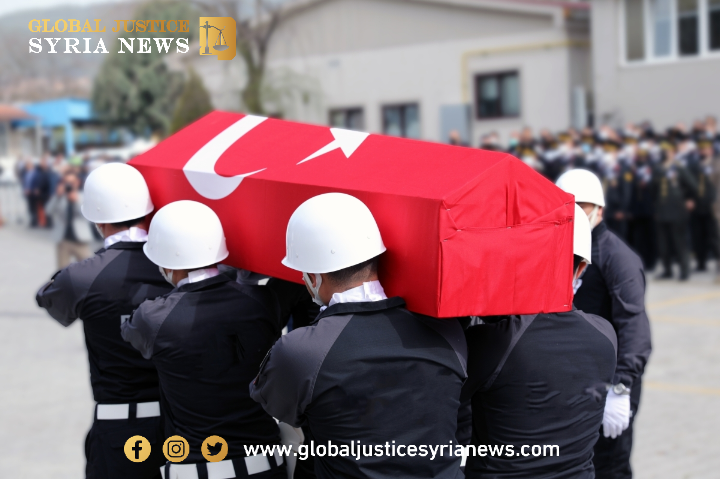The Kurdish separatist group’s strikes are becoming more frequent and have major political implications internationally as well as over local elections
After nine Turkish soldiers were killed by the PKK in Iraq, there is a sombre and angry mood in Ankara. There are major political implications into local elections and over relations with the US.Shutterstock
After nine Turkish soldiers were killed by the PKK in Iraq, there is a sombre and angry mood in Ankara. There are major political implications into local elections and over relations with the US.
font change
OMER ONHON
LAST UPDATE ON 16 JAN 2024
Official funerals of nine Turkish soldiers killed in an attack by the PKK terror organisation in northern Iraq have been heart-breaking for the nation.
They highlighted an area of strain in relations with key allies – including the United States – at a difficult time for regional geopolitics and the wider world. The next steps Ankara takes over security could have significant implications at home and abroad.
The attack targeted a Turkish base near Metina, just across the Turkish-Iraqi border, in the mountainous and snow-covered terrain of northern Iraq. The army has established several bases there to prevent, or at least discourage, incursions into the country by the PKK, a Kurdish separatist group.
This attack is one of many in recent months, marking an intensification at the flashpoints in the area, with militant action previously unusual on this scale during the winter months. The previous clash, in December, killed 12 soldiers. The Turkish government attributes the unusual and bold moves to external players who use the group as subcontractors.
In retaliation, Turkey carried out air strikes against the PKK and another Kurdish group, the YPG, against their positions in northern Syria and northern Iraq.
President Recep Tayyip Erdoğan convened the inner security cabinet. It emphasised in a written statement that Turkey will never allow the establishment of a “terroristan”, or a terror state, next to its borders. It pointed to its right to self-defence and to combat terrorism, regardless of who is behind it.
Broader implications
The broader implications of this stance relate to the US and Israel. Washington works with the YPG, providing it with training and arms as part of the ongoing fight against the Islamic State (IS).
But Turkey considers YPG to be an extension of the PKK, long seen in Ankara as a terrorist organisation. This leaves it at odds with Washington, which has been backing the YPG for eight years.
Turkish strikes on October 5 on the Kurdish-controlled region of Hasakeh in northeastern Syria hit a car, killing two people, the Syrian Observatory for Human Rights said.
Read more: Lifting the veil on US-Turkey escalation in Syria



















